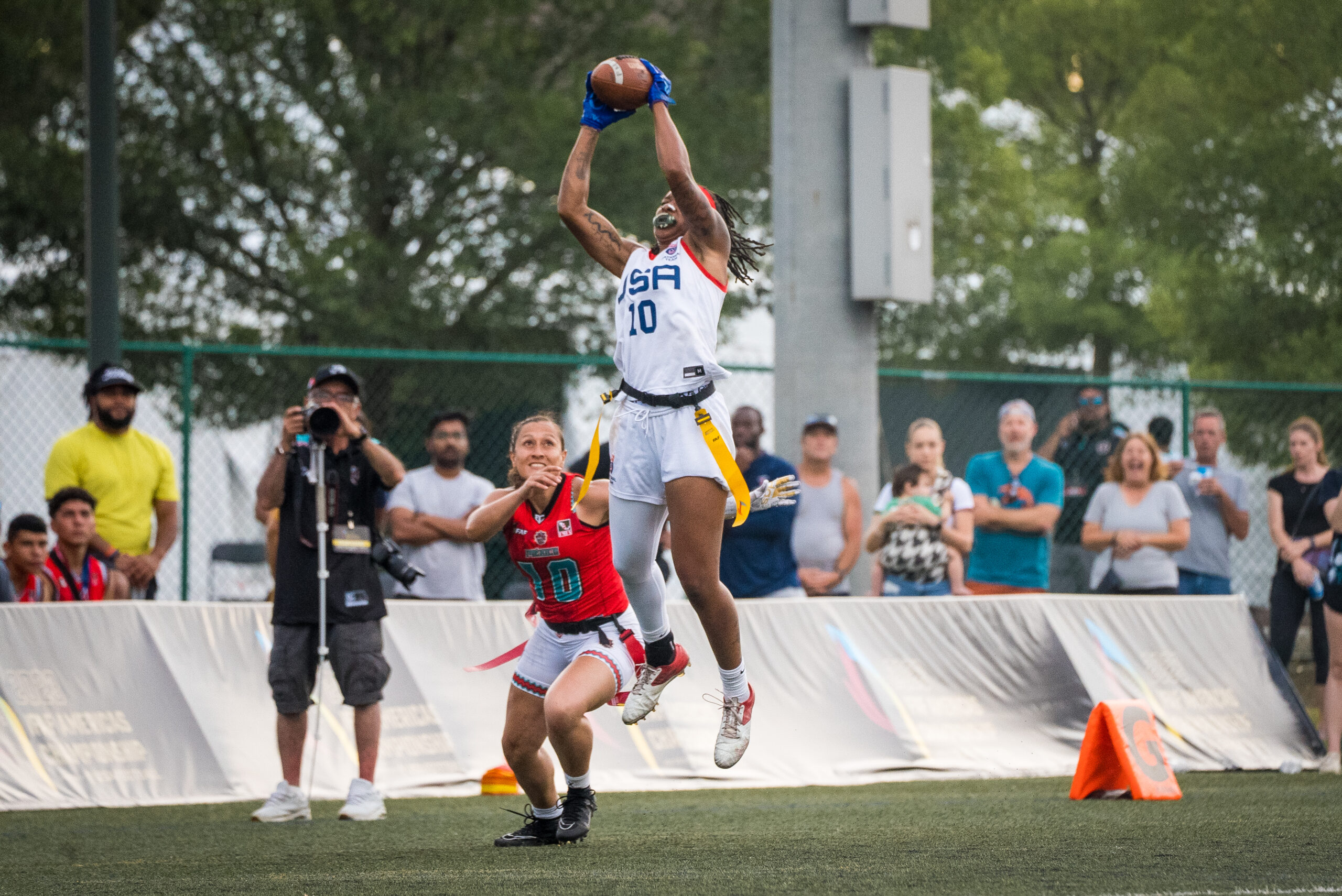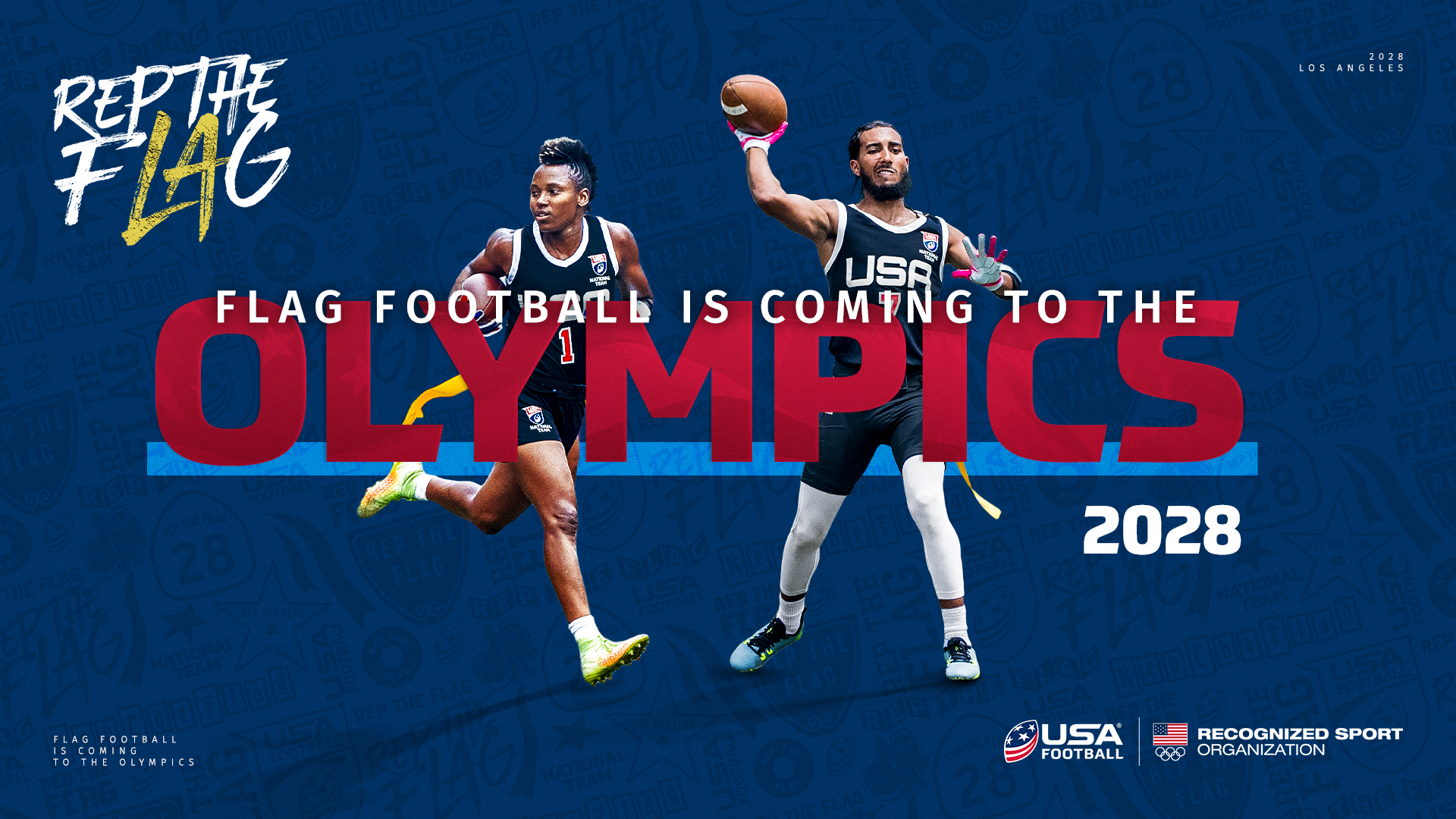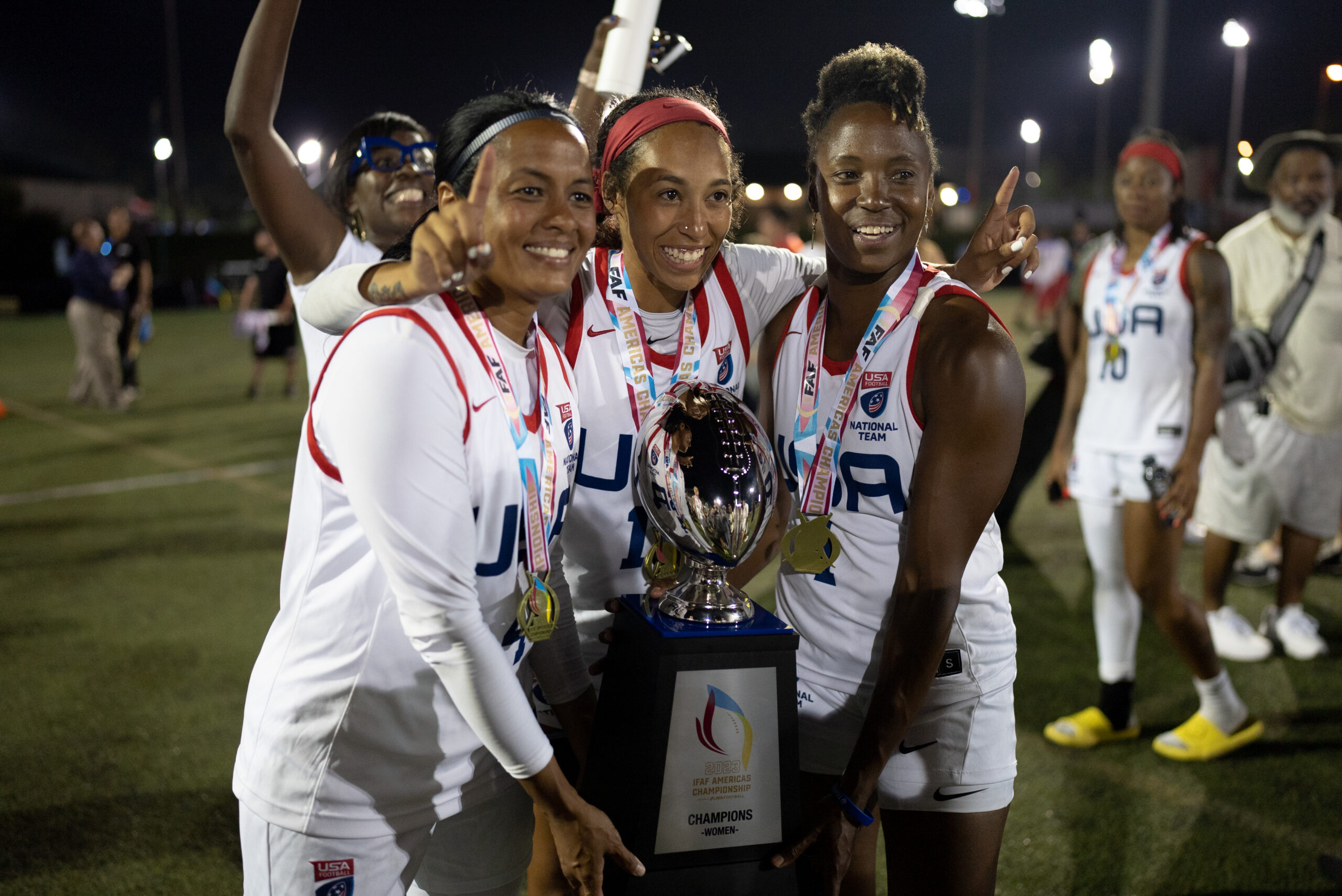
Yes, having the backing of the National Football League was a major plus for flag football in its quest for Olympic inclusion. How could it not be? One of the biggest leagues in the world wanting to continue spreading its brand internationally was a powerful attraction for the International Olympic Committee, including using the sport of flag in the 2023 Pro Bowl game.
Make no mistake, however: No matter the number of NFL players talking about participating in LA28, no matter the social media buzz, flag football’s inclusion in the 2028 Olympic Summer Games in Los Angeles is thanks to the massive rise in girls and women participating in the sport, lending a crucial gender equity incentive for the IOC.
“You have to have gender equity,” USA Football President and Chief Executive Officer Scott Hallenback said on the SportsTravel Podcast recently. “And we’re seeing the passion and the excitement from the girls to women’s side. … This would never have happened without gender equity. And I give credit where it’s due to the NFL and their clubs to help support that.”

Surging Participation in U.S.
The Sports and Fitness Industry Association’s annual participation study in 2022 reported that 7.1 million people participated in flag football while eight states have already sanctioned girls’ flag football as a varsity sport. Hallenbeck said the NAIA has between 20-30 schools offering scholarships or flag football “and I will tell you, our conversations with the NCAA not only in the emerging sport for women (and) what’s really interesting is there’s so much enthusiasm at the collegiate level they’re even considering the idea of is at least exploring — I’ll be very clear, exploring — that maybe it makes sense to also have a male side of this at that level.”
Cassie Furler, national youth director for USA Flag, has been with organization six years. Her local league has around 140 girls participating this fall and as the news came that flag football would be in the Olympics, “my daughter specifically, she and I — we kinda teared up at the possibility of everything. She and the other girls were asking what they can do to get better, to be competitive, as soon as it was announced.”
Furler has noticed the increase in in participation in her home state of Texas, saying the local leagues are adding teams and divisions rapidly in what organically is making the case for the state high school association to eventually consider it being a sanctioned sport. She remembers playing in a tournament with Vanita Krouch, who was on the 2023 USA Football Women’s National Team, back in 2015 and “we said from the time we started playing together, what if we had the chance to play together since we were seven. Now we can see it with our girls the opportunity. It’s becoming a first sport for girls and I hope it continues to grow that way.”
“It’s been incredible to have their opportunity to play, they’ve flourished and we’ve seen explosive growth on the female side,” said Charles Davis, co-founder of USA Flag, an independent event organizer. “Any additional optics on a big stage like (LA28) is advantageous to the sport as a whole and especially on the female side. They’re very advanced in their skillsets in a sport that’s been traditionally dominated on the male side.”
Davis noticed the rise in girls flag was about two years ago, he said, and that has only continued. This past year’s USA Flag world championships in Tampa had 240 women’s team, he added — “to make up roughly 25 percent of the participate base is really high and it’s continuing to rise year over year.”
And for those who question how popular the sport can be, Davis refuses to put a ceiling on it.
“I believe that they’re going to be more opportunities for girls to play, a lot more girls funneling to play flag football as an additional sport that want to be multi-sport athletes,” he said. “You’ve seen a lot of top tier Fortune 500 brands promote girls sports as a whole, there’s going to be a lot more opportunities with corporate alliances and treating the girls as football players.”

Growth Continues Internationally
The sport has continued to also grow internationally, reportedly by up to 20 million people in 100 countries. Proponents of the sport were also strategic in putting it on stages to showcase its gender equity and competitiveness. Flag football debuted at The World Games 2022 in Birmingham, Alabama, with the IOC, NFL and sponsors on hand to see it in action.
And while the general consensus would be two gold medals for the United States, the women’s gold medal game was instead won by Mexico and star quarterback Diana Flores, who has since been a major part of NFL’s flag commercials.
“That is also very important to the IOC and rightfully so,” Hallenbeck said. “They want to ensure that there’s equitability in terms of competitiveness among countries.”
The seeds of international flag being competitive for women was planted with Hallenbeck at the IFAF world championships in 2018 in Panama and seeing the host country with former Olympic volleyball players and soccer players and basketball players — “I just had not seen this level of quality of competition and athleticism — at least in flag — to that point. And I was blown away. And it was really shortly after that, we all sort of came back and said, we’ve got something here. We’ve got to build on this.”
From there, the sport has continued to grow to where more than 150 athletes and coaches from seven countries converged on Charlotte, North Carolina, in July for the IFAF Americas Continental Flag Football Championship hosted by USA Football, which is the sport’s governing body in the United States.
“I’ve been working football domestically for almost two decades now and I’ve never seen a sport scale or grow this fast,” Hallenbeck said. “It’s just incredible. Again, I give a lot of credit to the NFL clubs and since the (LA28) announcement, it’s just rocket fuel.”
For those who are promoting the sport, the LA28 inclusion also only fuels the ambition in the sport continuing to be in the Games with 2032 next up in Brisbane.
“That is 100 percent our goal,” Hallenbeck said. “Frankly, I wouldn’t be doing my job, whether it’s IFAF or USA football, if we didn’t have that longer term vision and strategy. We do not want to come off the Olympic program — period. The NFL will be hugely valuable. Obviously, their experience speaks for itself in terms of major events, Super Bowl, Pro Bowl, you name it.
“They will do an excellent job with IFAF and certainly LA to put our best foot forward as a sport and hopefully get all the results that everybody would expect to want, ticket sales, eyeballs, you name it. That gives us as a sport the greatest chance to appeal to Brisbane and the IOC and stay on the calendar and stay on the program. That is clearly our objective going into LA.”











 Copyright © 2025 by Northstar Travel Media LLC. All Rights Reserved. 301 Route 17 N, Suite 1150, Rutherford, NJ 07070 USA | Telephone: (201) 902-2000
Copyright © 2025 by Northstar Travel Media LLC. All Rights Reserved. 301 Route 17 N, Suite 1150, Rutherford, NJ 07070 USA | Telephone: (201) 902-2000